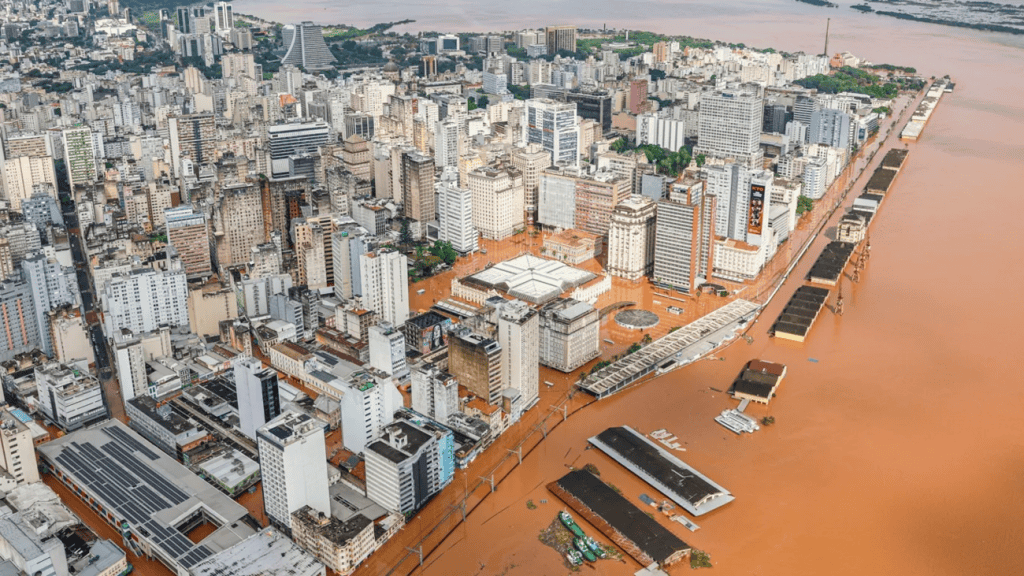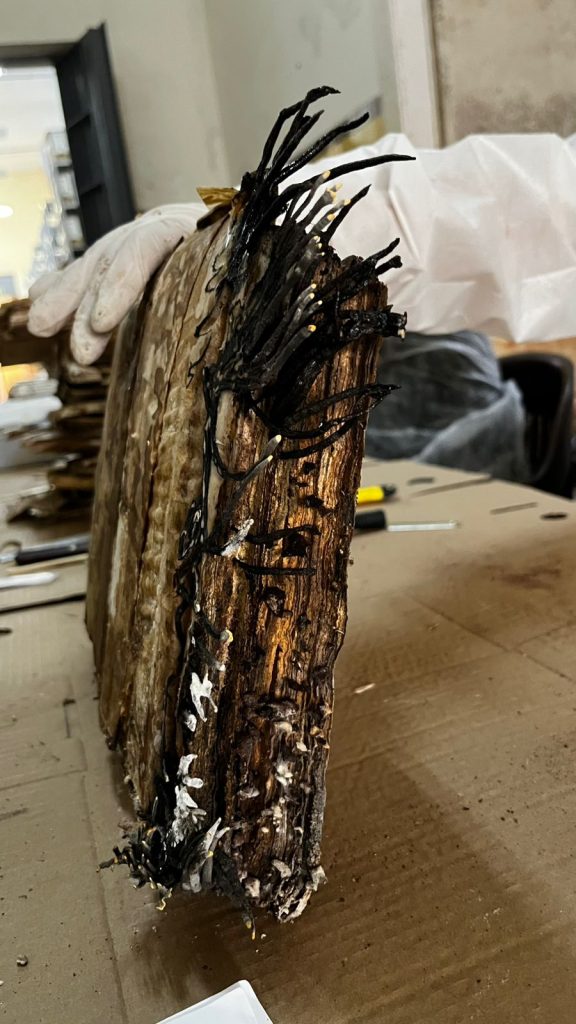On May 1st of 2024, the governor of Rio Grande do Sul decreed a state of emergency affecting the southernmost state of Brazil. A heavy and unprecedented rain, along with a sequence of infrastructure problems, caused damage to 478 of 497 Rio Grande do Sul’s cities; 184 deaths were registered, and 25 people are missing until this day; more than 200,000 people had to leave their homes (some estimates up to 600,000). If you lived in the capital of the state, Porto Alegre, it was virtually impossible not to know someone who left their home rescued in improvised boats, during the 14 days that an expressive part of the city was submerged. Fortunately, my parents and I were not directly affected, but I cannot say the same for my whole family and friends.

Reading Perkiss’ Hurricane Sandy on New Jersey’s forgotten shore brought all of these memories back in a way I cannot explain. Although it is not (or should not) be the purpose of history as a discipline, it is impossible to not be caught in emotion sometimes. As I was going through the genealogy of Hurricane Sandy, I thought the whole time about how difficult it must be to conduct oral history interviews not only right after it occurred but also doing the follow-up and stating that there was still so much left to do years later. I cannot stress how emotionally strong someone has to be to join a OH project like that, but this challenge seems to be easier when you articulate such external forces as Perkiss did, especially on preparing her undergrad students with former oral historians. I actually felt really welcome about her later descriptions about organizing the project, gathering students and going back to handbooks, mostly because it shows that no matter your experience as a historian and teacher, there is always more to learn.
But, again, what caught me off guard was trying to imagine conducting a similar project in my hometown and reviving all of those memories again. Most readings and conversations we had so far about emotions were regarding the narrators, their trauma experiences and how the environment and questions of an OH interview might bring these up. On the other hand, I don’t feel we addressed enough about how it may have its own effects on the interviewer and how to deal with that. My feeling reading Perkiss was that no matter how much I could prepare myself before an interview like that, I could not assure anyone a hundred percent that I would not break into tears hearing the people’s struggles during and after the flood of 2024. The thing is: can anyone predict that at all? I imagine that if a person knows they have a chance of getting emotional and have trouble keeping it together, it would be smart and ethical to step back, but what if you truly believe you are able to handle it? How could we prepare interviewers to deal with this scenario and what are the implications it may have in the segment of the conversation? In comparing community volunteers that have “an advantage in researching the subject matter and in establishing rapport with interviewees” and “the ‘clinical’ interviewer from outside the community [that] may be seen as more neutral and discreet”, Richie (p. 55-56) is writing with big scale and/or funded OH projects in mind – which are not the reality for most of those historians entrepreneurs. From a superficial research, I have found only an OH project about the flood of 2025 in Rio Grande do Sul regarding the memories from Public Administration; as this is a recent and meaningful event, there are undergrad and grad students developing individual studies about civilian memories, but they usually work by themselves. How is it possible, then, if a big part of this history is being written in these roots, to think about the limitations of an interviewer in dealing with a collective memory they also share?

Bibliography
Perkiss, Abigail. Hurricane Sandy on New Jersey’s forgotten shore. Ithaca: Cornell University Press, 2022.
Richie, Donald. Chapter 2 – Setting up an Oral History Project. In: ____. Doing Oral History: a pratical guide. Oxford: Oxford University Press, 2003.